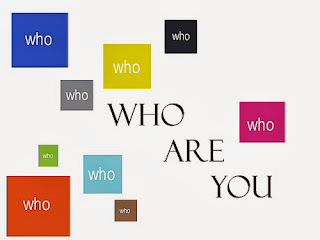Know How to tell Your Story.
Your Story Might Be
Yours, But Is It Really A Story?
Have you ever stopped to think about all it took to become
you? Like others, it’s likely that your teenage years launched you on a quest
for identity that probably brought a fair amount of disorientation,
experimentation, and even fear.
And that was just the beginning! As you matured, you may
have developed a sense of identity, but never quite shook the fear of not
fitting in.
Yet, somehow you ended up with a sense of identity that
supports you. And if you’ve ever been through a structured assessment and
introspective process you’ve probably attained even more clarity and confidence
in your sense of self. Well, at least until confronted with the need to tell
your story. At that point, self-knowledge probably seems to evaporate!
Still, in today’s social media-driven world, if we want to
connect with our audiences, we are increasingly challenged to tell our story.
That’s a good thing. However, what is not so good is the kind of guidance that
suggests we create our stories. You know, to make them up. Somehow, the
thinking goes, we can decide how we want people to see us, and then craft a
story to supports that. Seems inauthentic, doesn’t it?
To confuse things more, today, you can find a psychological
assessment that will identify your “story type” – that is, a personification of
factors that contribute to your success. This is probably a good thing.
However, while you may gain valuable insights, it would be a mistake to construct
your story around a type. While you may be conveying valid information about
yourself, if you’re not describing life experiences, you’re not really telling
your story.
Whether you’re starting from assessment results or not, if
you want to uncover and share your story, consider these tips:
Start with your
audience in mind.
If the purpose of your story is to connect with your
audience, you need to identify what about you will most resonate for them. Your
story needs to show that you “get it,” so you are perceived as “one of us,” and
begin to earn a level of trust.
Show how you
persevered in the face of uncertainty or adversity.
Storytellers know that with no conflict there is no story.
The same applies to you. So, show how you became who you are as a result of
having overcome conflicts, doubts, turning points, and even flaws. These make
you human and authentic, and enhance your chances of establishing an emotional
connection.
Convey a clear theme
that shows what you stand for.
While events move your story forward, its true backbone –
and what anchors the value that you bring to others – is your theme. So, dig beneath your experiences to uncover
the values and beliefs that drive your vision for what’s possible in the world.
Your theme is your why, and it’s what fuels the difference you make for the
people you serve.
Ultimately, if you want to tell your story, you need to
share your journey.
March 12,
2013 by Walter AkanaWalter Akana HeadshotWalter Akana is a Reach Certified
Personal Branding and Online Identity Strategist. Founder Threshold Consulting,
he works with mid-career professionals and executives. His career advice has
been featured online at marketwatch, cnnmoney, and online.wsj. He is a
long-time blogger, and avid user of social media.

Comments
Post a Comment